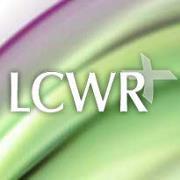Leadership Team shares LCWR statement on public charge comment deadline
The Leadership Team and Justice Promoter wanted to share with you this updated message from the Leadership Conference of Women Religious (LCWR):
Dear Friends,
 If you haven’t already we hope you’ll make your own comment on the administration’s harmful Public Charge rule before the December 10 deadline. If you’ve already made your comment, can you help others submit their own comments, too?
If you haven’t already we hope you’ll make your own comment on the administration’s harmful Public Charge rule before the December 10 deadline. If you’ve already made your comment, can you help others submit their own comments, too?
As you know, the Trump administration is trying to limit immigration to the U.S. and penalize immigrants already here legally by drastically expanding the definition of “public charge.” Before the administration can make this change, they must allow the public to comment on the proposed regulation. That’s where you come in. We need as many people as possible to post their comments in the Federal Register opposing these changes and explaining how immigrants contribute to U.S. communities and the economy.
What is public charge?
“Public charge” is a term used by the federal government to determine the likelihood that an immigrant will become dependent on the government for support. Individuals seeking admission to the United States or seeking to adjust their status to become a lawful permanent resident (LPR) are inadmissible if the individual, “at the time of application for admission or adjustment of status, is deemed likely at any time to become a public charge.”
 For many years, the public charge analysis focused on the likelihood that an immigrant will become financially dependent (i.e. likely to receive over 50% of their income or support from) on the government through: (1) the receipt of public cash assistance, or (2) long-term hospitalization or similar care at the government’s expense. The government may (and at times must) also consider whether an “affidavit of support,” has been filed by a relative or another individual in the U.S.
For many years, the public charge analysis focused on the likelihood that an immigrant will become financially dependent (i.e. likely to receive over 50% of their income or support from) on the government through: (1) the receipt of public cash assistance, or (2) long-term hospitalization or similar care at the government’s expense. The government may (and at times must) also consider whether an “affidavit of support,” has been filed by a relative or another individual in the U.S.
What are the proposed changes to the public charge rule?
The Trump administration is proposing to drastically revise the factors they use to determine “public charge” by:
- Considering cash and non-cash government assistance like health care, nutrition, and housing programs. For instance, using the Supplemental Nutrition Assistance Program (SNAP), Section 8 housing assistance, or having a costly non-emergency medical condition could prohibit someone from getting a green card.
- Considering criteria such as age, health, income, and education when determining if someone may be a public charge in the future, which would negatively impact those with limited English proficiency or physical or mental health conditions.
- Adopting a new threshold for households that hope to overcome a “public charge” test by requiring that the immigrant, not just the immigrant’s sponsor, earn at least 125 percent of the Federal Poverty Level and by weighing as “heavily positive” a household income of 250 percent of the Federal Poverty Level. This means, to avoid scrutiny under the public charge test, a family of 4 would need to earn nearly $63,000 annually.
Which public benefits are NOT considered in determination of public charge?
Emergency medical assistance; Disaster relief; National school lunch or school breakfast programs; Foster care and adoption; Head Start; Child Health Insurance Program (CHIP or SCHIP).
Who does this impact?
Legal immigrants seeking lawful permanent resident (LPR) status or seeking to extend their current legal status and individuals who are applying to legally enter the U.S. as immigrants or non-immigrants.
Who is excluded from the changes?
Public charge does not affect refugees, asylees, survivors of trafficking, domestic violence, or other serious crime, VAWA self-petitioners, special immigrant juveniles certain people paroled into the U.S.
Action
Your voice and your leadership are needed now. The most effective way to fight back against these proposed changes to the public charge rule is to get as many people as possible to participate in the public comment period, which ends December 10, 2018.
- Submit a comment on behalf of yourself or your organization:Simple share why you oppose the Trump administration’s proposed changes to the rule. See suggested comments below. Please adapt the language. Identical comments are discarded. Click here to register your opposition to the administration’s proposal
- Help others submit written comments: CLINIC’s Public Comment Mini-Toolkit gives you everything you need to:
- Show the IIC Video Explainer on the Public Charge;
- Share information about the proposal;
- Organize an event in our community to gather public comments;
- Submit comments by mail. Must be postmarked by December 10, 2018.
- Educate the public about the importance of family unity and the value of ensuring that everyone has access to essential services! Families provide the support that helps newcomers find work and start businesses, complete their education, provide care for children or aging family members, and ensure that the household can participate fully in the local economy. Please use these sample social media posts to spread the word.
- Call Congress to let them know that you oppose these changes and want Congress to stop them:
Sample Script: “As your constituent, I am opposed to the administration’s proposed rule change that would broaden the definition of ‘public charge’ to keep families separated and immigrants out. I ask you to oppose these changes and to do everything in your power to prevent the administration from implementing them.”
Suggested Comments: N.B. Please personalize these comments–Only unique comments will be considered.
Possible Introduction
On behalf of ORGANIZATION/INDIVIDUAL], [We/I] would like to submit the following comments concerning the proposed rule from the U.S. Citizenship and Immigration Services (USCIS) on Inadmissibility on Public Charge Grounds. (Docket ID: USCIS-2010-0012)
[INSERT SHORT DESCRIPTION OF ORGANIZATION OR INDIVIDUAL SUBMITTING COMMENTS We are/I am] concerned about the proposed rule because it violates the tenets of our faith and threatens the values of our nation. We are called by our faith to care for the vulnerable and we are challenged by our national values to promote the welfare of all our people and tend the common good.
Key Points you might include:
- The proposed changes to the public charge analysis will undermine the health and well being of lawful immigrants and mixed-status families. The regulation could make immigrant families afraid to seek access to healthy food, health care, and housing. This fear would extend far beyond people who may be subject to the “public charge” test.
- The new rule will prevent family reunification for many individuals seeking lawful admission to the United States, as many more individuals will be denied entry on the public charge ground. The new public charge regulation puts the wealthy ahead of families who have waited years to be reunited with their loved ones and for access to a green card. Our lives in this country should be defined by how we contribute to our communities—not how much money we have.
- The proposed rule targets lawful immigrants who are in the country legally or seeking to come to the U.S. lawfully. It will undoubtedly keep some from migrating legally and others from enrolling in programs for which they otherwise qualify. In fact, this rule has already had a chilling effect on families’ willingness to access critical benefits and services.
- The regulation assumes you can accurately divide people into permanent classes of contributors and non-contributors. This is totally inconsistent with our national values and the history of immigration in our country.
- The proposed rule could prevent families who are legally present in this county from receiving vital nutrition and housing assistance. We know the critical importance of these programs and services, and the role they play in helping families move toward and maintain self-sufficiency. The regulation will have ripple effects on the health, development, and economic outcomes of generations to come.
Possible Conclusion
Our faith reminds us that we are to love our neighbors and care for those most in need. As we read in Mathew 25: “Amen, I say to you, whatever you did for one of the least of these brothers and sisters of mine, you did for me.” The proposed changes to the public charge regulation target the needy and threaten our children. If we want our communities to thrive, all families in those communities must have access to the care and services they need and to which they are entitled.
Additional Resources:
- IIC Video Explainer—Public Charge
- CLINIC webinaron Understanding Changes to Public Charge
- CLINIC’s guide to taking part in the Federal Rulemaking Process
- JFI’s new Public Charge Backgrounder
- Protecting Immigrant Families Analysis of Proposed Changes
- Interfaith Immigration Coalition Public Charge Toolkit
- CLINIC’s Factsheet on Public Charge
- National Immigration Law Center Guidance When Speaking with Immigrant Families
- Mom’s Rising FAQ Document
- LCWR’s StatementOpposing Public Charge
Thanks for whatever you can do! We hope to help 100,000 people make comments about the harmful effects of the proposed public charge rule before the December 10 Deadline. If you need help, please don’t hesitate to be in touch.

